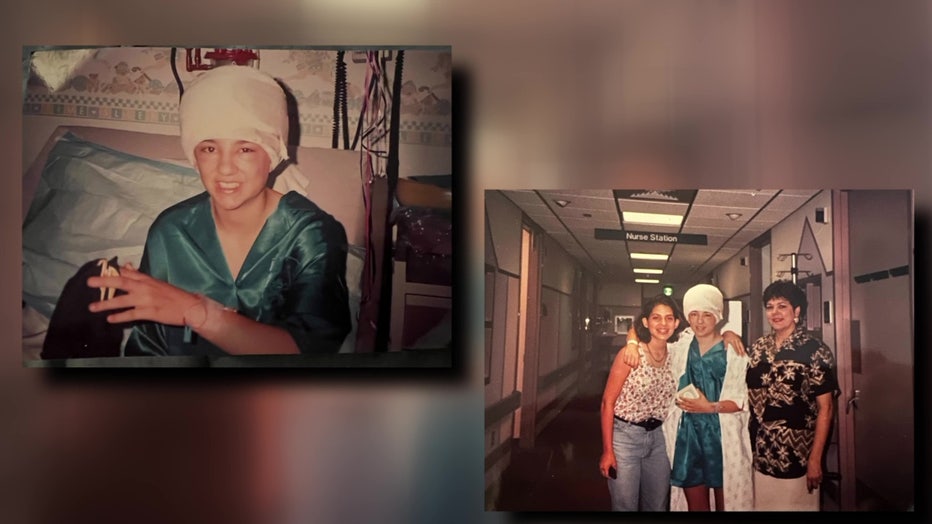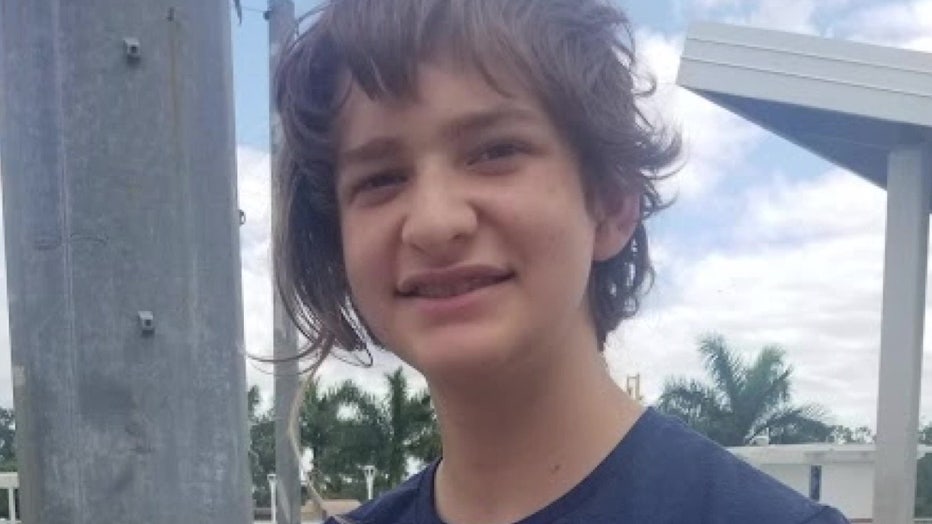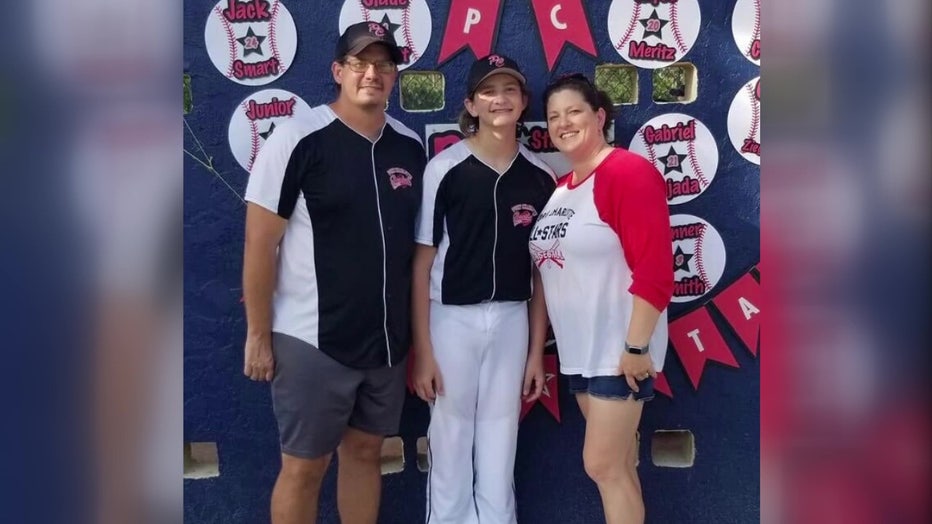Woman who survived brain-eating amoeba offers hope to family of teen battling same parasite
TAMPA, Fla. - A Tampa woman wants to provide hope to the family of a teenager battling a brain-eating amoeba by sharing her story of survival nearly 30 years after she fought off the same type of parasite.
Aimee Rossiter was just 12 years old when she went swimming in a pool in Tampa. Not long after, she developed a fever, complained of headaches and her face began to swell. She eventually began having seizures.
Doctors diagnosed her with a brain-eating amoeba.
"It was a scary time, a very scary time, not knowing if I was going to make it," Rossiter told FOX 13. "They did tell my parents that they didn't think I would be able to ever walk or talk or that I was going to possibly be blind."

After several years and several surgeries, Rossiter made a full recovery. She's now 41 years old and has a family of her own.
"I feel very fortunate," Rossiter said.

Nearly 30 years later, her painful memories came flooding back when she saw the Caleb Ziegelbauer's story. Caleb, 13, has been fighting the same type of parasite for two months.
RELATED: Florida boy flown from Tampa to Chicago as fight against rare brain-eating amoeba continues
Caleb's family believes he contracted a brain-eating amoeba July 1 while swimming at Port Charlotte Beach. He was just flown from Tampa to Chicago to receive specialized treatment.

"I know what he's going through. I know he doesn't know what's happening right now in his family either," Rossiter said.
Caleb has already beaten the odds. Brain-eating amoebas, which are often found in warm, fresh water, are extremely rare but almost always fatal. There have been 155 reported cases in the U.S., 151 of which have been deadly.
Rossiter wants Caleb's family to know he can survive.

"I [would] tell Caleb's family not to give up. He'll make it through. It makes me emotional," she said. "Don't give up. Have faith. Keep hope. When the doctors told my parents, 'we can't do anything else, all we can do was pray' at that point, that's what everybody did. And obviously prayer works."
Rossiter said her case was so rare at the time that it was written about in the New England Journal of Medicine.

